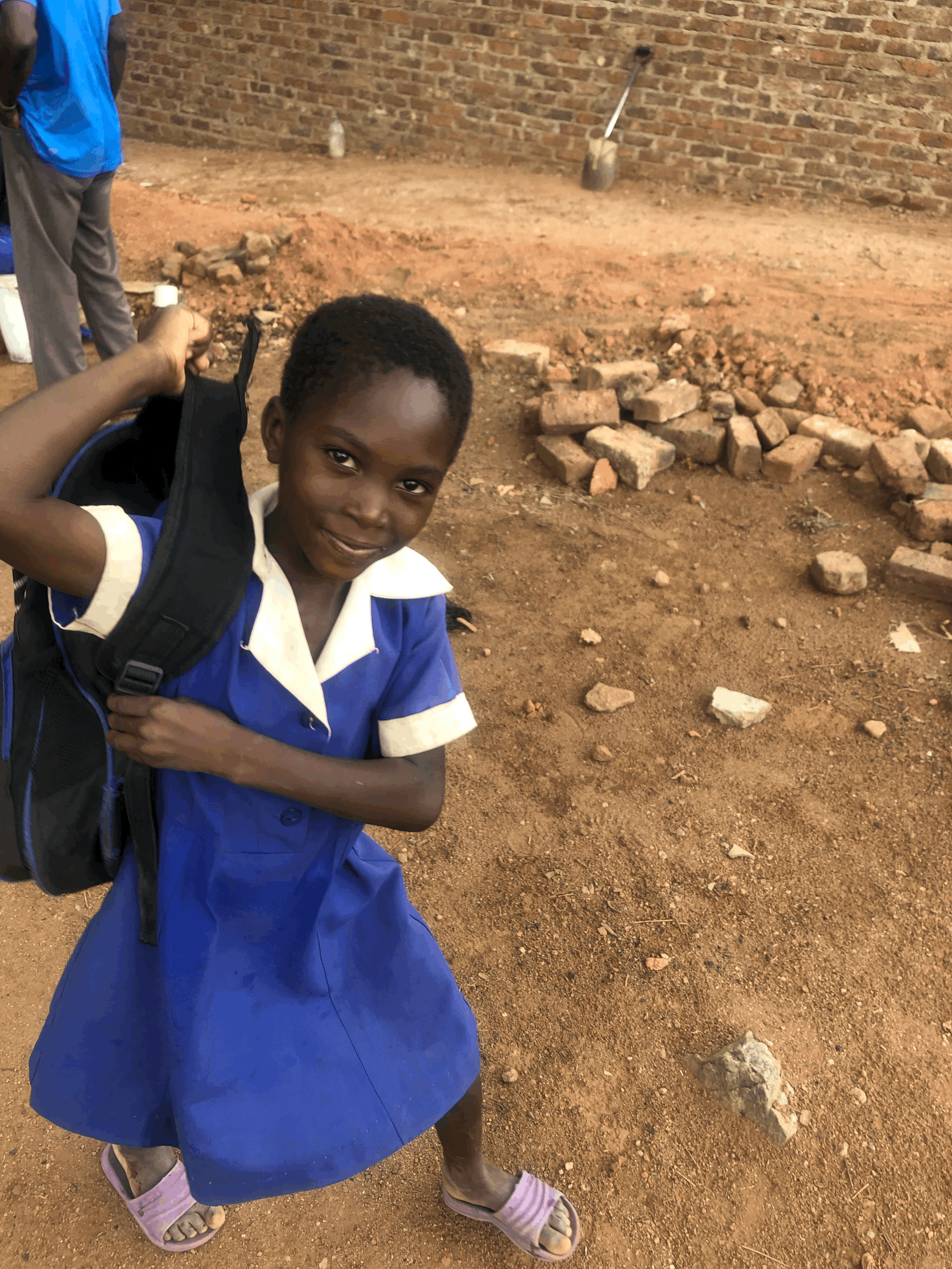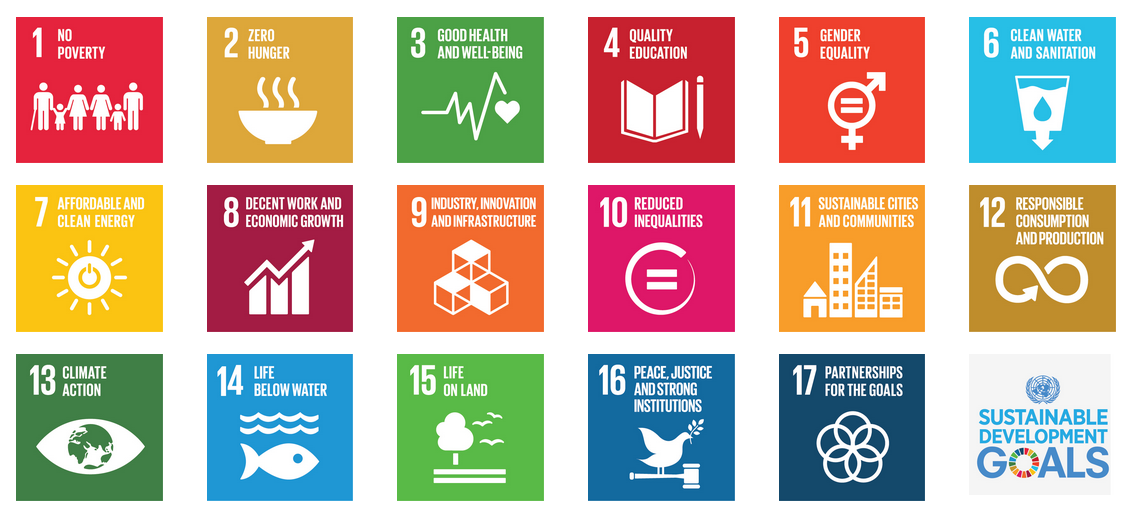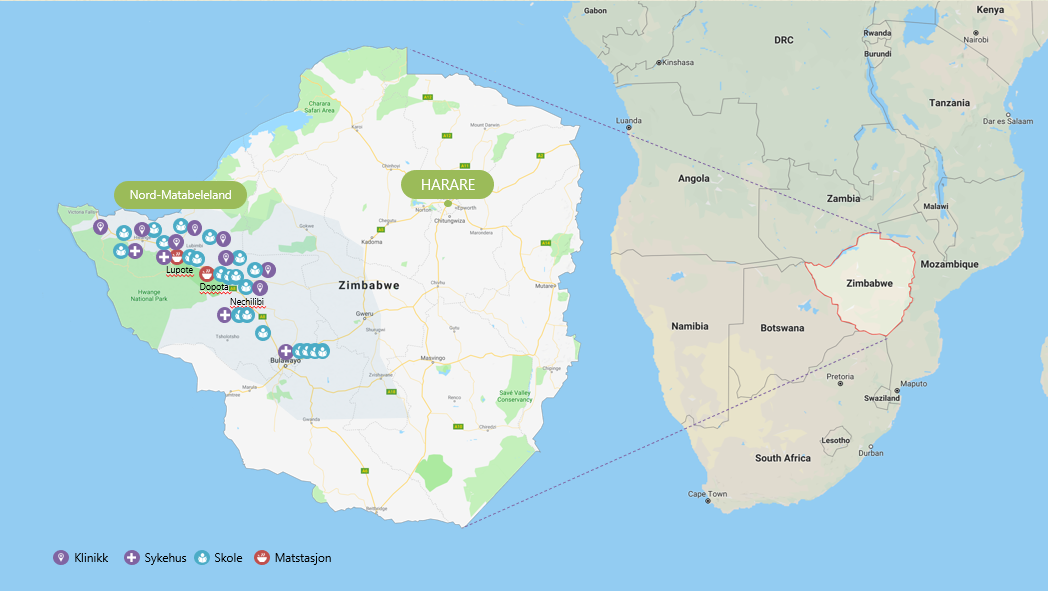
We work at the grassroots for a better future in Zimbabwe
About us
Sabona is a grassroots charity organization that works for a better future for the people in Zimbabwe, a country full of strife in the far south of Africa.
We have a holistic focus on education, employment, and health. Based on experience, we know that all three are needed to create a sustainable society, and supporting self-help is the key to success. That is why we ensure that the local population manages their own projects and that they are involved in the full process, everything from idea to execution and operation. When a project is finished, it is the local community that is in charge of the operation so that Sabona can safely move on to help other people in need. This creates projects that are stable, effective, transparent, and sustainable.
Currently, Sabona distributes almost 250.000 school lunches every year and has helped over 17.200 children and adolescents with education. Sabona operates at the grassroots level in North-Matabeleland and the projects are connected to schools and clinics in various villages in Lupane and Hwange district, and the areas around Bulawayo, the second biggest city in Zimbabwe.
The Sabona office in Oslo, Norway has 0,5 employees, 4 interns and many volunteers and partners giving services, keeping cost low. Our Board is very engaged and work volunteer basis. Main objective is fundraising in Norway is fundraising and working hand in hand with Sabona Trust team in Zimbabwe. Our team in Zimbabwe is carrying out our vision to the communities most in need.
A donation will make a huge difference! International Bank Account Number (IBAN) NO88 15060955171
WHAT WE DO
Sabona is a small organization that supports grassroots projects in Zimbabwe. The local populace is in control of their own projects, and the goal is to support self-help and independence. Sabona works in North-Matabeleland in Zimbabwe, which is located in the far south of Africa. We are working in poor rural communities where our help is needed the most, and our projects within health, education, and job creation (employment) are operated by the local community.
-

Education
17.200 CHILDREN HAVE RECEIVED SCHOOLING
Sabona provides children with the opportunity of education, which also contributes to keeping the schools open. We also focus on higher education as it is important to retain knowledge in Zimbabwe. Read more about Sabona Development Centre (SDC) under Job creation, the idea is to bring together education and work opportunities.
-

Job creation
631 JOBS CREATED THROUGH OUR PROJECTS
People have dreams and a desire to create something. By supporting entrepreneurship and sustainable solutions, Sabona wishes to give people equal opportunities to create a better future. Read more about Sabona Development Centre (SDC). The idea is to bring together work opportunities and education.
-

Health
13 BOREHOLES DRILLED
Sabona works to ensure access to clean water, healthy and nourishing food and medical services. Very few have the opportunity to receive hospital level care. Sabona reaches out to many people through our cooperation with clinics and doctors who do home visitations. We also have several projects that aim to combat malaria and HIV/AIDS.
By choosing to support SABONA you contribute to achieving 14 of the United Nnation’s 17 sustainable development goals.
1: No poverty, 2: Zero hunger, 3: Good health and well-being, 4: Quality education, 5: Gender equality, 6: Clean water and sanitation, 7: Affordable and clean energy, 8: Decent work and economic growth, 9: Industry, innovation, and infrastructure, 10: Reduced inequalities, 11: Sustainable cities and communities, 15: Life on land, 16: Peace, justice, and strong institutions, 17: Partnerships for the goals
SABONA’S CENTRAL PROJECTS
#1: Sabona frequently works to achieve targets 1.1 and 1.4 to eradicate extreme poverty and ensure access to basic services and natural resources. Our help fund provides medical help from professionals and access to medication, and our focus on vegetable cultivation and production of chicken ensures nutritious food to vulnerable people and the opportunity of generating income through sales. Read more.
#2: Sabona frequently works to achieve targets 2.1, 2.2, 2.3, and 2.4 to end hunger, achieve food security and improved nutrition and promote sustainable agriculture. Our boreholes and food production projects ensure thousands of vulnerable people with access to water and nutritious food. Our food stations (school lunches) provide children with a nutritious meal every day, which is extremely important for child development.
#3: Sabona frequently works to achieve targets 3.2, 3.3, 3.4, 3.5, and 3.8 to ensure healthy lives and promote well-being for all at all ages. Our project involving HIV patients ensures access to essential medication and nutritious food which is particularly important for this group. We also work to stop the stigmatization of HIV patients. Our projects within food production, access to clean water, health clinics, and food stations contribute to the goal of ensuring healthy lives for all.
#4: Sabona frequently works to achieve targets 4.1-4.7 to ensure inclusive, equitable quality education and promote lifelong learning opportunities for all. More than 17.200 vulnerable children have received an education, and both men and women get essential training in different fields. We have sewing groups that make school uniforms and we provide courses to repair water wells. Some schools have gained access to tablets which contributes to effective and upgraded learning.
#6: Sabona frequently works to achieve targets 6.1, 6.2, 6.4, and 6.b to ensure availability and sustainable management of water and sanitation for all. We have drilled 13 boreholes which ensure access to clean water and good sanitation in long periods of droughts. This makes it possible to keep livestock and crops. In addition, hundreds of children can spend their time doing schoolwork rather than having to spend the day doing hard labour and providing water for their families.
#8: Sabona frequently works to achieve targets 8.2, 8.5, 8.6, and 8.8 to promote sustained, inclusive, and sustainable economic growth, full and productive employment and decent work for all. Our projects within food production and boreholes among other things have generated lucrative work for more than 631 people in the rural areas. Creating and ensuring jobs are extremely important to create hope for a better future and for the next generations.
Sabona means “I see you” in Ndebele. An appropriate name when the organization was founded in 2003.
It all started in 1999 when our founder, Ynghild Solholm, travelled to the village Dopota. As a teacher, she experienced that children were fainting from hunger during class lectures, and she realized quickly that something had to be done! With her own student loan and contribution from a charity concert in Norway, she started a food station at the school where she was working. Poor parents that otherwise would have kept their children at home to work to help bring food in, would now send them to school. The issue of student absence disappeared, and a brighter future was made possible.
This is where we work
Zimbabwe is located in the southern part of Africa. The population is approximately 16 million people. There are multiple ethnic groups living in Zimbabwe, but the majority belong to the Shona group (85%). The minority group Ndebele (15%) is mainly located in Matabeleland, which is the southwestern part of Zimbabwe and borders Zambia and Botswana.
Development in Zimbabwe has faced uphill battles for many years. Political instability and inflation have had a significant impact on the country for several years. The population also faces challenges related to HIV/AIDS, climate change, and soil degradation. Sabona’s projects are meeting these challenges and establishing growth and positive repercussions in the local community. The organization has been able to stay connected to local communities and sustain our projects during the country’s difficult times. We are persistent in helping as many people as possible and providing a safe environment for our projects.
Sabona operates at the grassroots level in North-Matabeleland (view map) and the projects are connected to schools and clinics in various villages in Lupane and Hwange district, and the areas around Bulawayo, the second biggest city in Zimbabwe.
Ethical guidelines
Sabona and Sabona Trust work against all forms of discrimination, harassment, and economic fraud and corruption. We have strict policies and all of our employees, partners, and other associates that represent the organization are well informed about our tools to report incidences and applicable ethical guidelines. Our employees receive careful and thorough training on our ethical guidelines. We have zero-tolerance for exploitation of position, corruption, sexual harassment, violence and assault, or any other behaviour that violates our principles. Read more about our guidelines here.
Collection percentage
95,4%
Administration percentage




